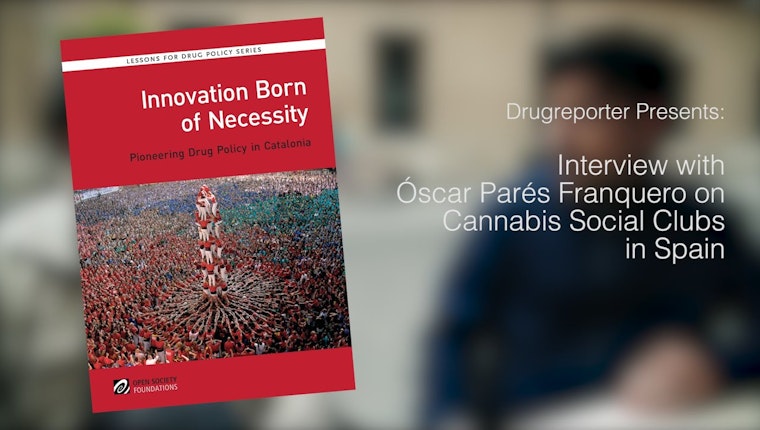How Catalonia Became Spain’s Laboratory for Smarter Drug Policies
By Kasia Malinowska-Sempruch

Should we regulate cannabis and, if so, how? While there is no one-size-fits-all solution, inspiration for answers can be found in the stories of communities that have dared to try something different. Catalonia, an autonomous region of Spain, has created health- and rights-based drug policy that not only reduces the harms of drugs, but also creates new opportunities for public health, security, economic growth, and a thriving civil society.
Innovation Born of Necessity: Pioneering Drug Policy in Catalonia, a new report published by the Open Society Global Drug Policy Program, tells the story of how Catalonia implemented a community-driven, public health–centered approach to its heroin epidemic and created a new model for legal cannabis consumption. These unique approaches were driven by Catalonia’s fiercely independent spirit, strong sense of personal rights, and decades of experience organizing outside of the state structure.
In Spain, drug possession for personal consumption has never been prosecuted criminally. That said, the national politics have rarely been straightforward. As in most countries, Spain’s drug policies have been driven in large part by the interests of select political powers that have fluctuated with changes of government, national events, and the rise and fall of the economy. They have been based more on agendas than evidence.
For example, following the Spanish Civil War (1936–39), to meet the needs of those dependent on morphine and patients with chronic pain, pharmacies were permitted to prescribe psychotropic drugs. This system was created in order to manage drug sales and use, and to avoid potential criminal activity that might result from restriction.
Decades later, during a dramatic increase in heroin use and an accompanying HIV epidemic, the government used this same mechanism to provide methadone treatment. However, in 1985, under the influence of an abstinence policy, the National Drug Program restricted the criteria for methadone maintenance programs. As a result, the number of people in treatment fell and the number of HIV infections increased.
However, at the local level in Catalonia, the situation has been quite different. According to the authors of the report, “The relative independence of the autonomous regions has made it possible to develop drug policies that significantly differ, in purpose and intent, from the national policy. In Catalonia, innovative drug policies have been devised that prioritize public health, are not criminally punitive, and attempt to balance individual freedom with community concerns.”
Catalonia’s long-held values of collaborative grassroots action and political autonomy have forged unique social and health policies on women’s issues, sexuality, prostitution, mental health, and drugs. The best known of these is the cannabis social club, which—through a cooperative, nonprofit structure—legally grows, sells, and creates a space for members’ consumption of cannabis.
The popular narrative of cannabis policy reform tends to focus on the benefits to casual and therapeutic users. While they are the most immediate and visible beneficiaries, there is a broader community around them that also benefits. Models for legal cannabis consumption, like the one that first took root in Catalonia, are at once the product and proponent of the very fabric of democracy. Innovation Born of Necessity shows how the cannabis social clubs reinforce civil society, protect public health, and shrink the black market while boosting the formal economy.
This report offers a valuable analysis of the cannabis social clubs’ emergence, functioning, struggle to remain viable, and potential value to Spain as a whole. It offers inspiration and vision for policymakers around the globe and at every level searching for alternative approaches to addressing drug use, treatment, and harm reduction.
Update (August 25, 2015): Video has been added to this post.
Read the complete report on Catalonia’s unique approach to drug policy.

Kasia Malinowska-Sempruch is a director of Programs at the Open Society Foundations.


